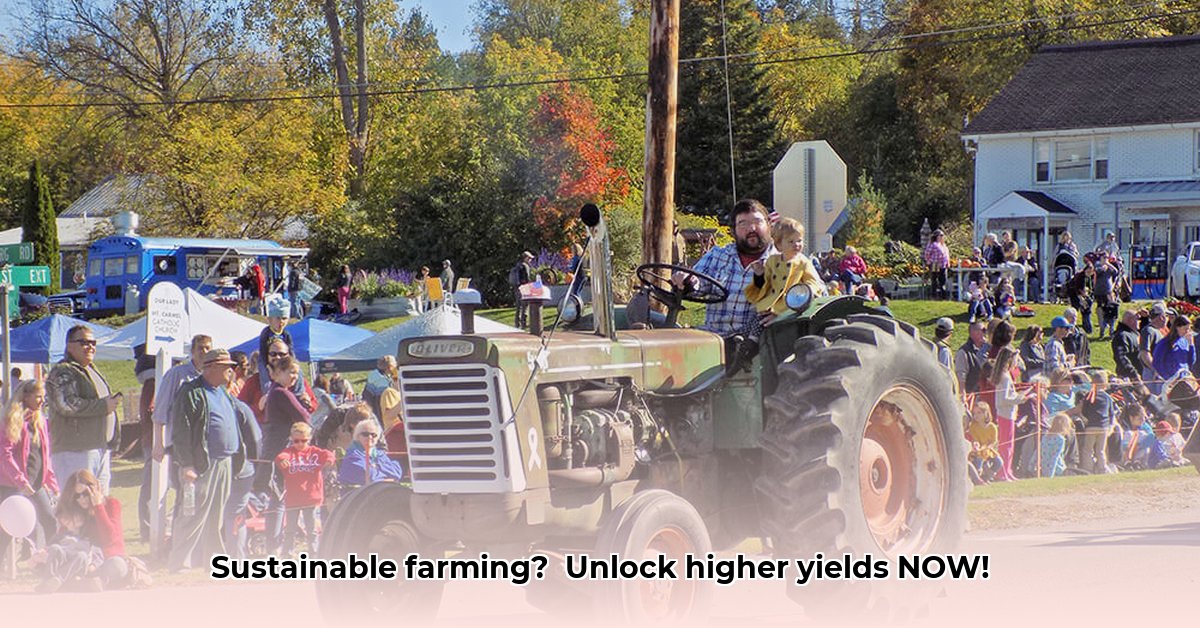
Charlotte Tractor and the Rise of Sustainable Agriculture in Charlotte, NC
The Charlotte, NC area is experiencing a surge in interest in sustainable agriculture, a movement focused on boosting yields while minimizing environmental impact. Central to this shift is the role of innovative technology and the support systems that make its adoption possible. How can local farmers navigate this evolving landscape, and what resources are available to them? This article explores the potential of Charlotte Tractor in empowering sustainable farming practices within the Charlotte community. Are they part of the solution? Let's investigate. Is it time to leverage technological advances and improve your farm's sustainability? For additional resources, check out this helpful resource.
Many farmers in the Charlotte region are adopting sustainable agricultural practices, which skillfully blend traditional farming wisdom with modern technologies. These practices are centered around optimizing resource use – water, fertilizers, energy – while preserving the environment and enhancing soil health. This translates to reduced waste, lower operational costs, and a more resilient farm capable of withstanding the inevitable challenges presented by nature. But how can you get started?
Precision Agriculture: Farming Smarter, Not Harder
A significant catalyst for sustainable farming is precision agriculture; this approach allows for tailored methods based on the specific needs of each section of a field. It's about providing each plant with precisely what it needs, when it needs it, maximizing efficiency and minimizing waste. This approach is a blend of data-driven technology and keen observation. Soil sensors provide real-time information on moisture and nutrient levels, while GPS-guided machinery ensures that resources are applied only where necessary. The result? A more harmonious system that leads to better yields and a lighter environmental footprint.
Implementing Precision Farming: A Step-by-Step Guide
While implementing precision agriculture might appear daunting, a systematic approach makes it manageable:
Comprehensive Farm Assessment: Before investing in new technology, meticulously analyze your farm’s operation. Identify major challenges and inefficiencies to pinpoint areas where technological intervention will have the most impact.
Strategic Technology Selection: The right equipment is crucial. Options range from GPS-guided tractors and planters to variable-rate technology for resource application and soil sensors for real-time data. A thorough understanding of your farm's needs is crucial in selecting the technologies that best suit your size, crops, and budget.
Invest in Training and Support: Mastering new technologies requires proper training. Many agricultural equipment dealerships, potentially including Charlotte Tractor, provide training programs to help farmers effectively utilize equipment and interpret data accurately. This ensures smooth integration and maximum benefit from your investment.
Data Analysis and Interpretation: Precision farming generates vast amounts of data. Cloud-based platforms can assist in consolidating and visualizing this information, providing insights to make data-driven decisions. Regular review ensures adaptability and continuous improvement.
Weighing the Costs and Benefits: Is Precision Farming Right for You?
While precision agriculture offers significant long-term advantages, initial costs should be carefully considered.
| Advantages | Drawbacks |
|---|---|
| Reduced fertilizer and pesticide usage | Substantial initial investment |
| Enhanced crop yields | Requires specialized training and expertise |
| Improved resource efficiency | Potential for technological malfunctions |
| Minimized environmental impact | Requires reliable internet connectivity in rural areas |
| Optimized water management | Data management complexity |
The decision depends on your unique circumstances, resources, and goals. While the long-term benefits often outweigh the initial investment, thorough evaluation is vital.
The Potential Role of Charlotte Tractor
Before making any equipment commitments, contacting Charlotte Tractor is advisable. Their specialists can offer personalized recommendations tailored to your farm’s unique characteristics and crops. They can also guide you through financing options and provide ongoing support as you integrate sustainable farming practices into your operation. This personalized approach ensures that the technology you adopt aligns precisely with your needs and resources available. Exploring their offerings and expertise is a crucial first step.
Conclusion: Embracing the Future of Farming
Sustainable agriculture is an ongoing process of learning, adaptation, and technological integration. By collaborating with resources like Charlotte Tractor and adopting precision agriculture, farmers in the Charlotte area can build more efficient, profitable, and environmentally responsible farms. This ensures not only economic viability but also a healthier future for the community. The journey toward sustainable farming is a continuous one, demanding ongoing learning and adaptation. But with the right tools, support, and a commitment to innovation, the rewards are considerable. The future of farming is here, and it’s sustainable.